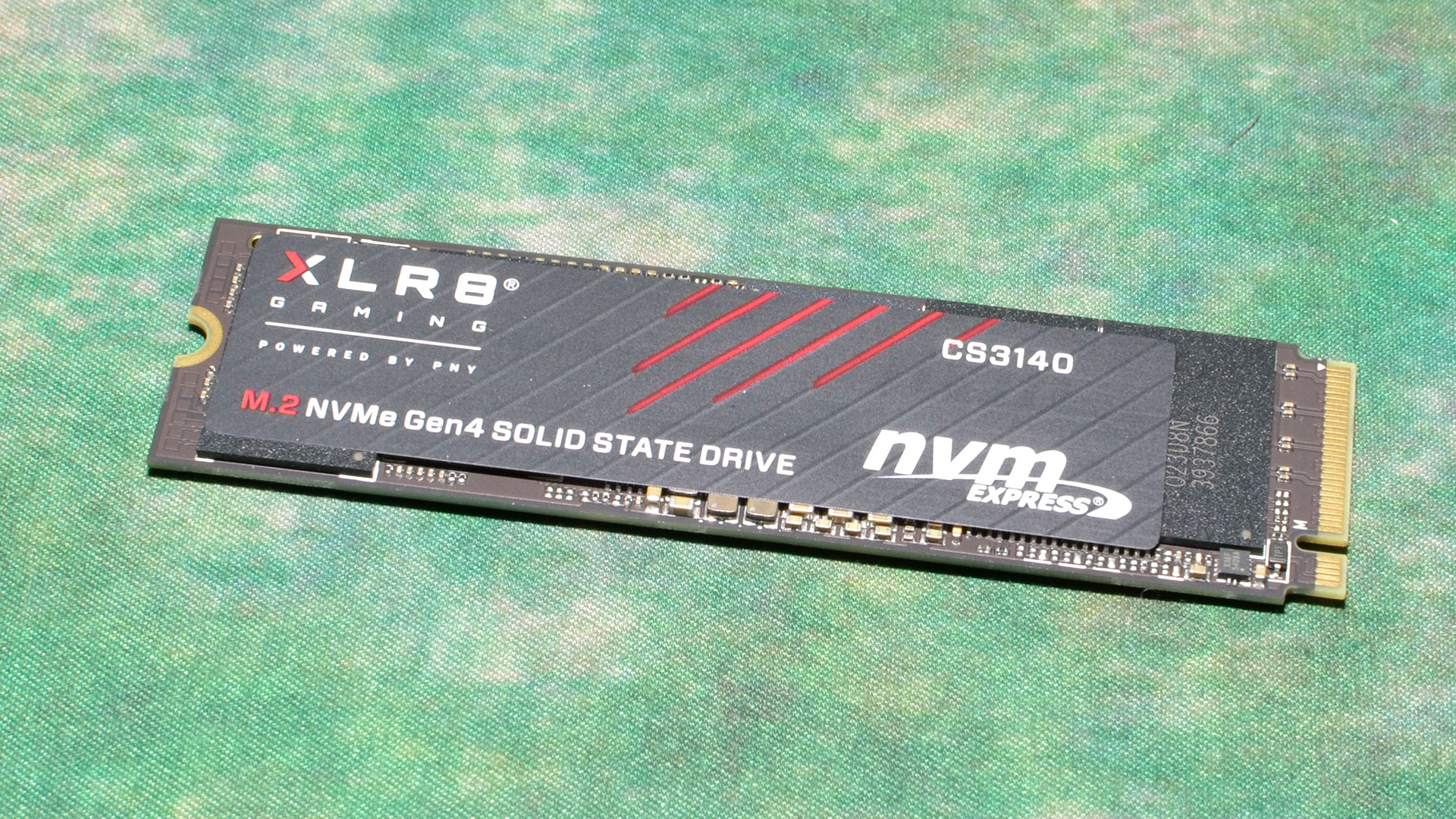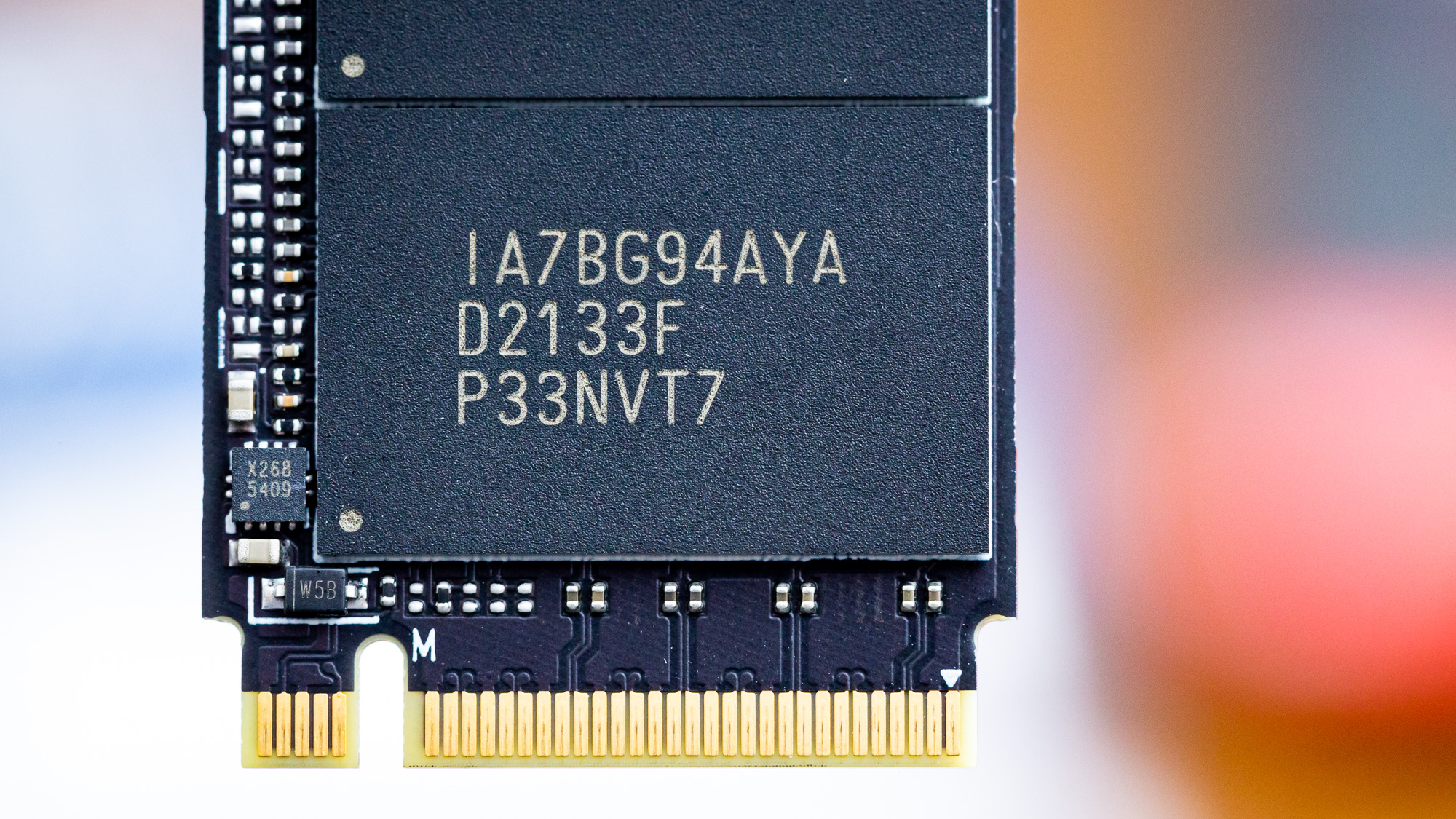Tom's Hardware Verdict
The 2TB PNY CS3140 is not a compelling SSD in the current market, with or without its heatsink. The switch to slower flash and its general pricing makes it uncompetitive, although otherwise it would be an acceptable choice for the PS5.
Pros
- +
Consistent performance
- +
Strong peak and all-around performance
- +
Power-efficient
- +
Good PlayStation 5 option from PNY
Cons
- -
Pricing
Why you can trust Tom's Hardware
August 25, 2023 Update: We've added new testing for the 2TB PNY XLR8 CS3140 SSD on page 2.
Original Review published June 22, 2022:
PNY has been around for a long time, known in particular for its flash-based products, but also for its memory and GPUs. The company's new XLR8 CS3140 SSD tops out at 7,500/6,850 MBps of sequential read/write throughput for the 2TB and larger models, and it's also flexible in that it has both a version with a heatsink and one without, and you can also use a separate PlayStation 5 heatsink for the latter.
Last year, PNY reduced the endurance rating on its CS3030 SSD by almost 80% due to the impact of Chia cryptomining, which was known for killing SSDs with heavy write workloads. But PNY has now returned to high endurance ratings with the XLR8 CS3140.
We tested the new 1TB XLR8 CS3140 model, which is a good starting capacity, but the 2TB model offers better peak performance because it is packed with more flash dies. Naturally, the 4TB is even more compelling if you're after more raw capacity. However, a basic primary drive is quite fine at 1TB, especially when coupled with strong hardware and a good SLC caching scheme like we see with the previous-gen CS3140. Let's see how the PNY CS3140 fares in our test suite.
Specifications
| Product | 1TB | 2TB | 4TB |
| Pricing | $139.99 | $269.99 | $674.99 |
| Capacity (User / Raw) | 1000GB / 1024GB | 2000GB / 2048GB | 4000GB / 4096GB |
| Form Factor | M.2 2280 | M.2 2280 | M.2 2280 |
| Interface / Protocol | PCIe 4.0 x4 | PCIe 4.0 x4 | PCIe 4.0 x4 |
| Controller | Phison PS5018-E18 | Phison PS5018-E18 | Phison PS5018-E18 |
| DRAM | DDR4 | DDR4 | DDR4 |
| Flash Memory | 176-Layer Micron TLC (B47R) | 176-Layer Micron TLC (B47R) | 176-Layer Micron TLC (B47R) |
| Sequential Read | 7,500 MBps | 7,500 MBps | 7,500 MBps |
| Sequential Write | 5,650 MBps | 6,850 MBps | 6,850 MBps |
| Random Read | N/A | N/A | N/A |
| Random Write | N/A | N/A | N/A |
| Security | AES256 | AES256 | AES256 |
| Endurance (TBW) | 700TBW | 1400TBW | 3000TBW |
| Part Number | M280CS3140-1TB-RB | M280CS3140-2TB-RB | M280CS3140-4TB-RB |
| Warranty | 5-Year | 5-Year | 5-Year |
The PNY CS3140 is available in the 1TB, 2TB, and 4TB capacities. These all have a five-year warranty backed up by 700TBW, 1400TBW, and 3000TBW of write endurance, respectively. Performance tops out at 7,500/6,850 MBps of sequential read/write throughput for the 2TB and larger models.
PNY doesn't officially list the IOPS measurements, but we can guess that this drive would be similar to other SSDs that have the same hardware combination. We had to dig up the endurance numbers on PNY's Taiwanese site, and the company seems to operate on the principle of “the less the information, the better.” That does make some sense in an era where SSD manufacturers often change the SSD's hardware after launch, but you'll need to do your homework to find concrete specs for these drives.
The drive supports 256-bit AES encryption. PNY sells this drive with and without a heatsink, and we are testing the version without. This makes it a good choice for the PlayStation 5, possibly as-is, but PNY sells a separate heatsink for SSDs that is designed especially for the PS5.
Get Tom's Hardware's best news and in-depth reviews, straight to your inbox.
Software and Accessories
The CS3140 doesn't come with anything special. PNY does offer a download for its PCIe SSD toolbox software for firmware updating on their site. This software also gives some basic information about the drive, such as SMART readings, and allows for secure erasing.
A Closer Look
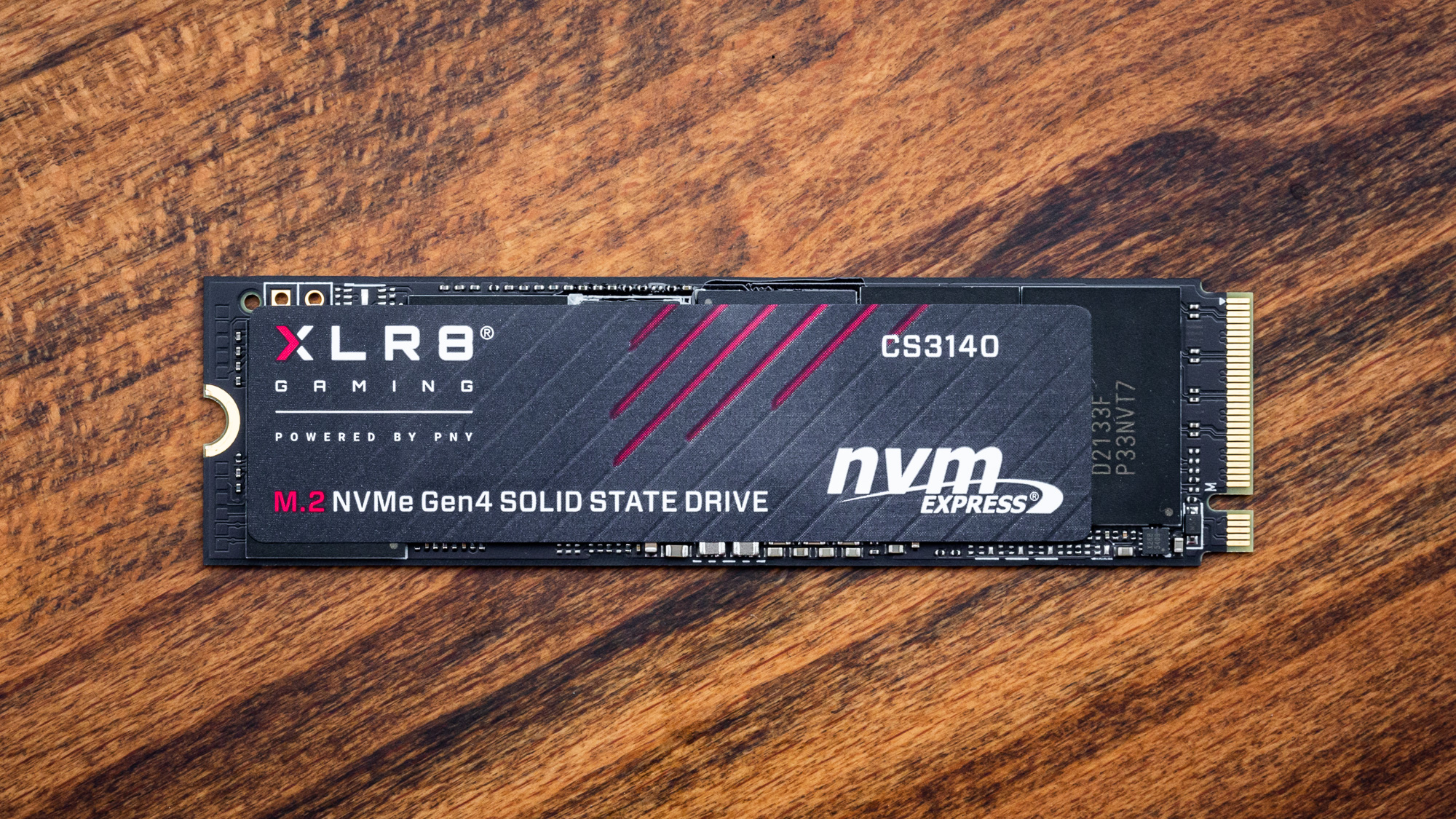
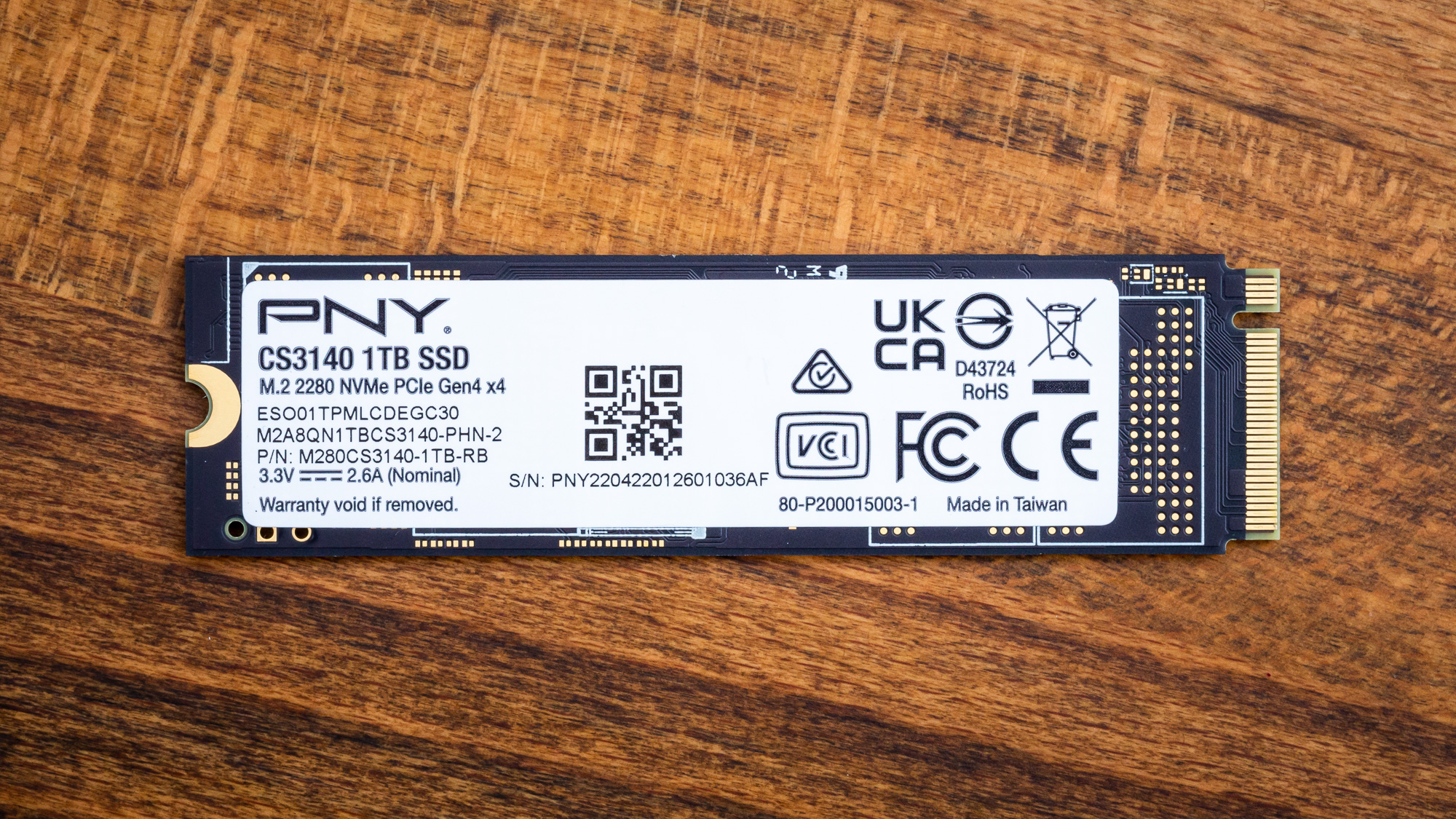
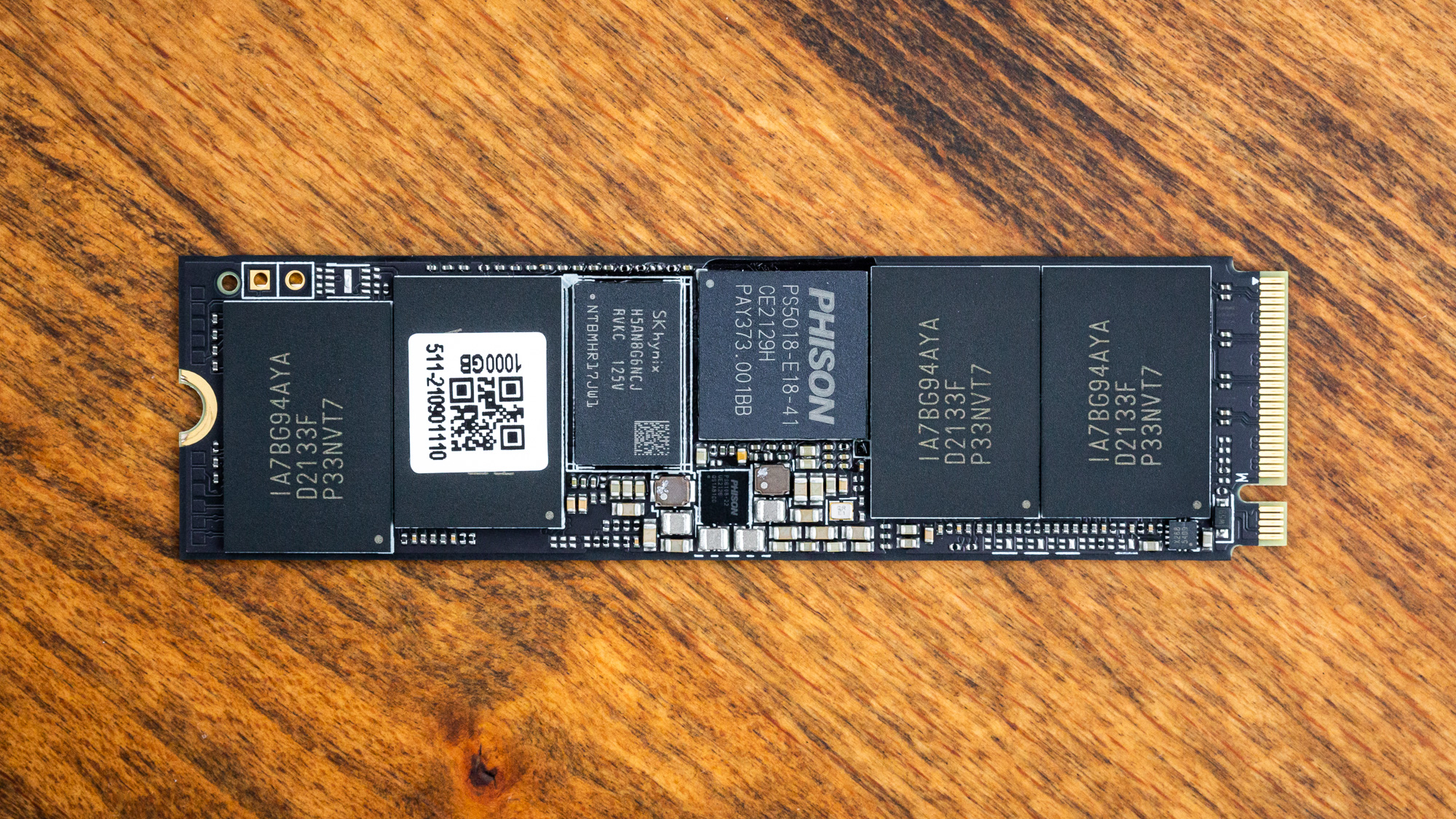
The drive is quite plain, sporting a rear label with basic details about the drive. Under the top label, we see the controller, DRAM, and four NAND packages in a standard configuration.
The flash is labeled IA7BG94AYA, which is 176-layer Micron TLC, a.k.a. B47R. This flash has proven excellent when coupled with the Phison E18 controller. As there are four packages, each should have four 64GB flash dies in a QDP configuration.
Based on data pulled from the drive, this flash is standard B47R running at 1200 MT/s. We’ve seen faster, but this is sufficient with two dies per channel. The endurance and quality of the flash look good, so there are no surprises here.
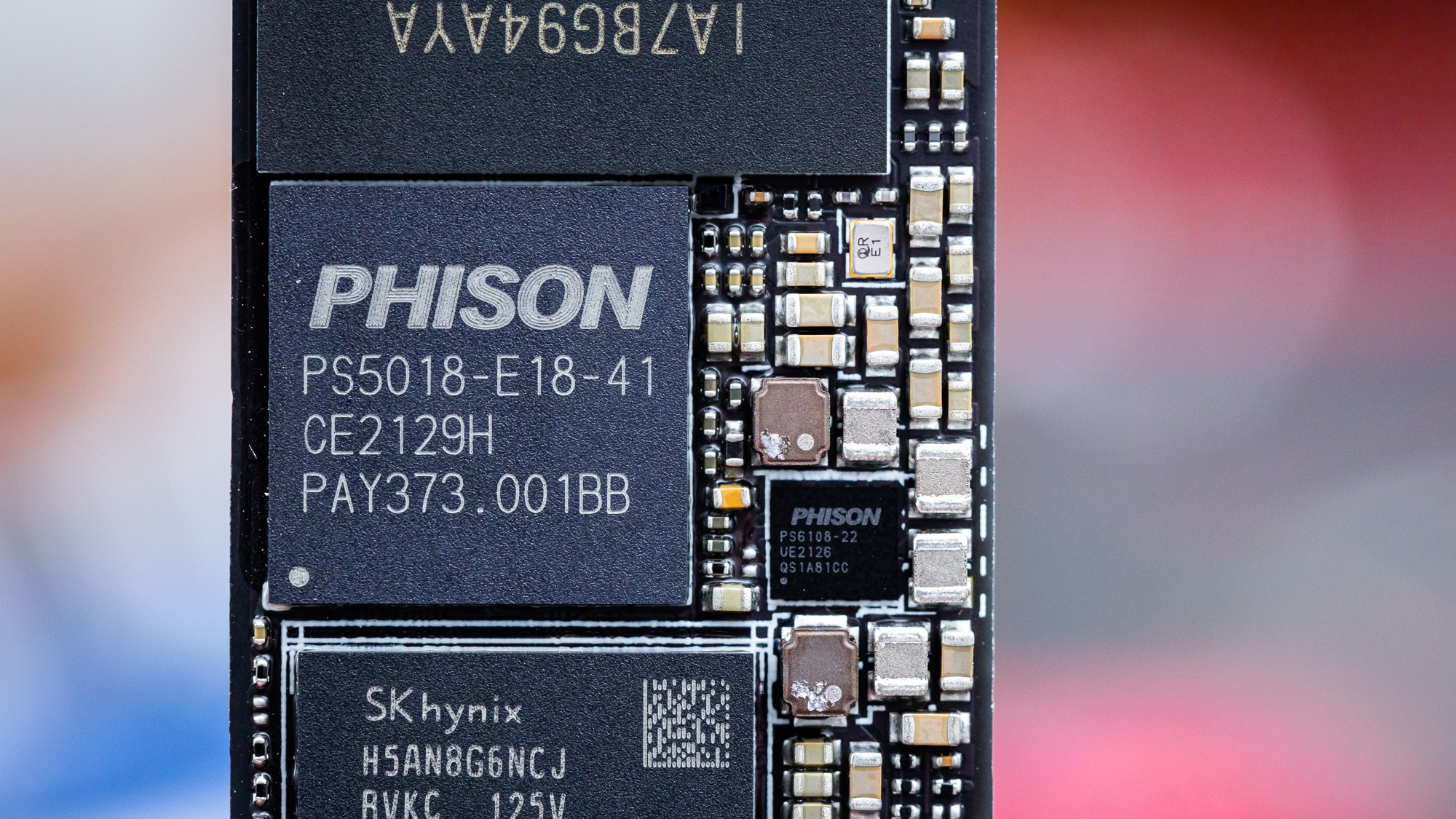
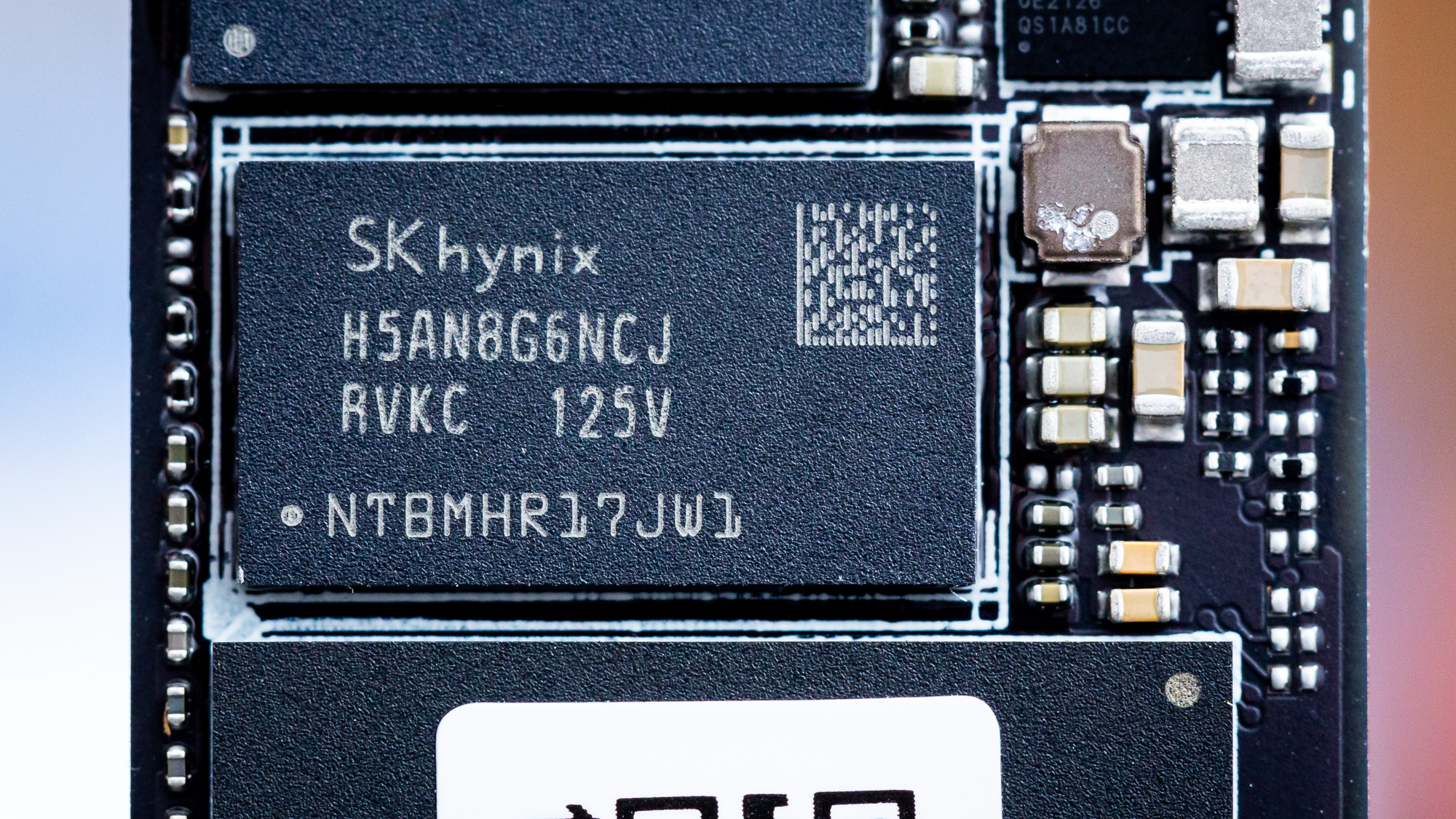
The Phison E18 controller needs no introduction - it’s been used on a wide variety of drives to good effect. It tends to be optimized for peak performance, specifically in sequential work, and it’s particularly good when paired with newer flash.
The DRAM is SK hynix’s H5AN8G6NCJR-VKC, which is 1GB of DDR4 in the 512M x 16b configuration. This would be C-die DRAM with the normal DRAM-to-NAND ratio, more than enough for any user. We can also spot the Phison power management package (PMIC) near the controller.
MORE: Best SSDs
MORE: Best SSD for the Steam Deck
MORE: Best Hard Drives
MORE: Best External SSDs

Shane Downing is a Freelance Reviewer for Tom’s Hardware US, covering consumer storage hardware.
